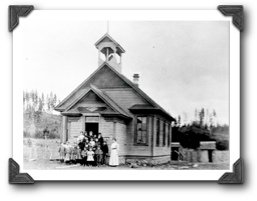History of SACE

Nineteenth Century Society
An organization by the name of “Society for the Advancement of Christian Education” existed in Britain during the nineteenth century. It is likely that this organization inspired some within the Christian Reformed Church (CRC) to propose, in 1892, the same name for a U.S. based society to promote Christian education. This was at a time when many parents were increasingly accepting the idea of common education because it alone was publicly funded, appeared to preserve “American” Protestant civic values in the face of a feared Catholic influence, and reflected the growing influence of the philosophically modern academy. The proposed “society” failed to gain support, and public education continued to become distanced from its traditional religious roots.
Religion and Culture
Over a century later, the name, “Society for the Advancement of Christian Education” (SACE) was given new life by former missionary, Christian educator, scholar, and strategist, Craig Engelhardt, SACE’s founding director. He describes its origins:
“The genesis of SACE was a love for God and five months of service with Youth With A Mission in India. There, in 1990, I gained a new perspective on people, society, and faith — one that not only linked cultures to religious beliefs that shaped the citizenry, but also viewed cultures as “testimonies” of the nature, power, and priorities of the gods behind the cultures. This was a new idea for an American who had assimilated the secular perspectives that religion had little relevance to society and society had little relevance to God. A healthy society merely required a “good” (secular) education system and abundant natural resources.
With new perspective, I came to find that the qualities of a nation (good and bad) were frequently linked with particular belie

“This association of religion with culture, though new to me, was not new to some of the Indians I talked with. Gods are not always visible, but they are made visible through the individuals and cultures of those committed to them. I will never forget a market-place comment that cut deeply into my heart; as I turned away from buying an otoscope because of its poor quality, the seller, who had traveled in America said, “Yes, I don’t blame you. Our stuff is junk. You are a Christian nation and make superior products, but we are a Hindu nation, and we have what is really valuable. We have families that stay together.” My heart was grieved not merely because of America’s divorce rate, but because this divorce rate was associated with our “Christian nation.” This caused me to wonder about the influence of our movie industry, American business practices, our government’s international relations policies, etc. Did these draw people to want to know the God they associated with American Christianity? American Christians may seek to distance God from our culture, but being the majority faith (nearly 82% of the U.S. population is Christian), the association is difficulty to avoid.
“I realized that whereas most Evangelical Christians consider their personal lives and speech to testify of God, few seemed to grasp the ways in which the myriad facets of culture can testify of God. If God is the source of beauty, value, justice, truth, commitment, compassion, fun, freedom, invention, wholeness, relationships, and provision, why don’t Christians point to the cultural out-workings of these things as testimonies of God?
“I returned to America to seek to understand the often subtle roles and foundations “beliefs” play in shaping not only the lives of individuals, but the cultural testimonies of nations. In this quest, I visited a spiritually and philosophically strong Christian school (Christian Heritage School) and studied under its headmaster. Here, I not only gained a better understanding of the link between religion and culture, but I found that the school day is vital to the Christian nurture of children. Children must be taught how to associate their faith with life and culture. It requires intellectual and academic rigor to discern how Biblical principles engage the arts, government, economics, family life, etc. I became convinced that without a good Christian education, it is difficult for Christian children to develop the understanding, character, or commitments to shape the diverse aspects of their culture to reflect the wisdom, compassion, creativity, and beauty of God.
SACE of the Twenty First Century
Though the concern to see God revealed through culture “as a city set upon a hill” was born in my heart in 1990, and many years before me in the hearts of the Puritans and others, it took form as a concern of SACE in December, 2009. It does not reflect an exclusivist vision of national superiority, but rather a concern for all nations. SACE hopes to see all peoples and all nations come to wholeness, and it believes that this is best achieved as people come to know and love the God of the Bible and to shape their societies through His wisdom. Since this goal involves the broad nurture of the minds and hearts of Christian children, the two central goals of SACE are straight forward: 1) Christian schools must be strengthened to draw from Biblical ideas in all areas, (follow the “Strengthening Schools Discussion" and 2) Christian schools must be made available to all interested families (follow the “School Choice” discussion).In the years to come, it is hoped that SACE and all its members will leave as a legacy, not only children who love the Lord with “all their hearts, souls, and minds” but cultural characteristics that Christians can point to as evidence of the goodness of God!
Society for the Advancement of Christian Education
Email us your thoughts!
